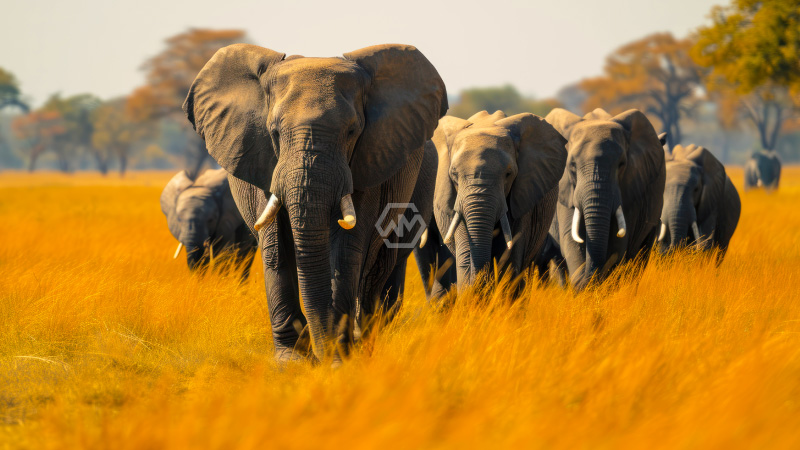- Zimbabwe plans to cull 200 elephants to provide meat for communities affected by extreme drought.
- The worst drought in four decades, linked to El Niño, has impacted 68 million people across southern Africa.
- Namibia has also initiated wildlife culling, targeting over 700 animals to feed the hungry.
Zimbabwe is set to cull 200 elephants in response to severe food shortages caused by the worst drought in decades. The plan aims to provide sustenance to local communities hit hard by the crisis, which has devastated crops across southern Africa.
The Zimbabwe National Parks and Wildlife Management Authority will issue hunting permits, while also undertaking direct culling in several districts, including Hwange and Chiredzi.
Elephant Cull in Zimbabwe: Response to Drought and Hunger Crisis
The El Niño climate pattern is blamed for the below-average rainfall, intensifying the region’s food insecurity. In Namibia, a similar effort is underway, with more than 700 wild animals, including elephants and hippos, already being killed to feed people facing hunger. This marks Zimbabwe’s first elephant cull since 1988 as authorities strive to balance wildlife conservation with human survival needs.
The drought, driven by the El Niño climate pattern, has wreaked havoc on crops, making it difficult for communities to sustain themselves. Across southern Africa, approximately 68 million people are affected by the severe food crisis, prompting governments to take drastic measures to provide relief. In Zimbabwe, officials hope the cull will offer some respite to those most affected by hunger.
This move mirrors Namibia’s recent actions, where over 700 wild animals, including 83 elephants, are being culled to provide food for struggling communities. Both nations face the challenge of balancing the need to protect wildlife with the immediate survival of human populations. The culling of elephants, in particular, is controversial given their conservation status but is seen as a necessity in the face of extreme circumstances.
Wildlife experts continue to express concern over the long-term implications of such actions, both for ecosystems and tourism. However, with starvation a growing threat, the urgency of providing immediate food relief takes precedence. The Zimbabwe National Parks and Wildlife Management Authority is preparing to begin the process once hunting permits are finalized.
As Zimbabwe prepares to cull 200 elephants to combat hunger, the move highlights the complex balance between conservation efforts and human survival during crises. While controversial, such measures underscore the urgent need for relief in the face of severe food insecurity.
“In the end, we will conserve only what we love; we will love only what we understand; and we will understand only what we are taught.” — Baba Dioum



